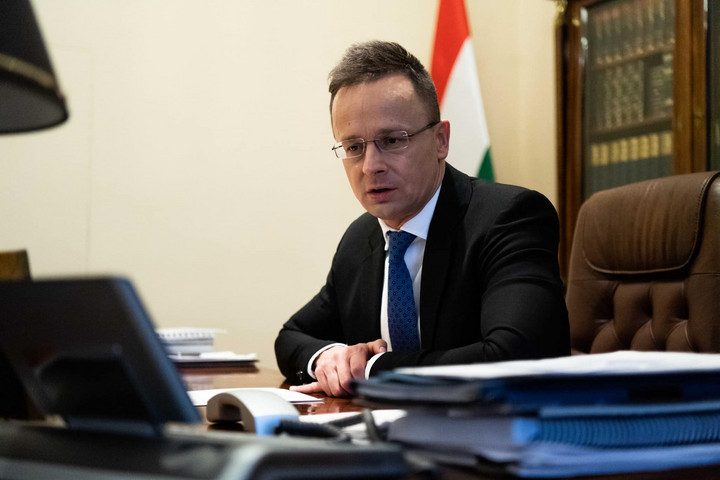The imposition of a global minimum tax would result in a tax increase and the endangerment of tens of thousands of jobs. Thanks to the disciplined budget policy in Central Europe, the lowest corporate taxes in Europe have to be paid, the imposition of the global minimum tax in Hungary would result in a serious tax increase and the endangerment of tens of thousands of jobs, said the Minister of Foreign Affairs and Trade in Kossuth radio's Sunday Newspaper program.
According to Péter Szijjártó, the global minimum tax would once again endanger jobs worldwide, and the increase in the tax burden of manufacturing companies would cause further price increases, giving another boost to inflation.
Regarding the fact that they want to introduce the global minimum tax in Europe from next year, while there are no such plans in the rest of the world, he believed that such a decision would put European companies at a competitive disadvantage.
Péter Szijjártó indicated that there was fair consultation at the level of the Minister of Foreign Affairs and the Minister of Finance with the heads of ministries of the United States, who support the global minimum tax, but he made it clear that
that the Hungarian government cannot support the introduction of the tax.
He added that there is an agreement between the American Republicans and the Hungarian government that the lower the taxes on labor, the greater the opportunities for growth in the economy.
He also said that an economic crisis is beginning to emerge as a result of the war in Ukraine. In the wake of the war of the last hundred days, not only a European but also a global economic crisis is beginning to emerge, he said, and he called it bad news for Hungarians that the war has been going on in the neighborhood for more than a hundred days, because the constant security - physical, economic and energy supply - threat means
We are all interested in peace in the neighborhood as soon as possible, but the efforts for peace have so far been fruitless, he stated.
The head of the ministry emphasized: Hungary took a clear position from the beginning, it condemned the military aggression against Ukraine from the very beginning, it made it clear that it stands by Ukraine, and that the country is carrying out the largest humanitarian aid operation of all time.
All along, the Hungarian government has also consistently advocated the position that the most important thing is to guarantee Hungary's security, that the country does not drift into the war and stays out of it, emphasized Péter Szijjártó.
He said: Hungary, as a member of NATO, takes the position that a direct NATO-Russia conflict should not occur, because it would have a "tragic effect".
Péter Szijjártó expressed his hope that
even at the NATO summit in Madrid starting in a few days, common sense prevails and no decisions are made that would escalate the conflict.
The Minister of Foreign Affairs and Trade stated: Hungary's natural gas supply, and the country's energy supply as a whole, is completely secure. The natural gas and crude oil arrived every day according to the contract, according to the schedule, undisturbed and without any kind of interruption, he explained. According to his information, Hungary has a long-term, fifteen-year gas purchase contract with Gazprom.
He said: when there were reports that Gazprom would stop deliveries to some countries, he spoke on the phone with the company's CEO and the deputy prime minister of Russia, who is also responsible for energy supply, who both assured him that they would fulfill their contractual obligations to Hungary.
Like many other Western European companies, MVM also pays for natural gas in a way that is required by the supplier, he added.
Péter Szijjártó indicated that the energy supply was also in crisis due to the war, which on the one hand represents a physical risk, and on the other hand has a serious inflationary effect. Wartime inflation "contains incredible dangers" for the economy, which is why it is in our interest to see peace, he said.
He noted:
everyone's burdens increase due to wartime inflation. Manufacturing companies have a serious need for energy to operate, and due to the rise in energy prices, they have to face ever-increasing costs.
If we even impose a global minimum tax on them, then a significant part of them will be unable to function, and tens and hundreds of thousands of jobs will be at risk again, similar to what happened one and a half to two years ago during the pandemic, said Péter Szijjártó.
Source: 888.hu
Featured Image: Facebook












